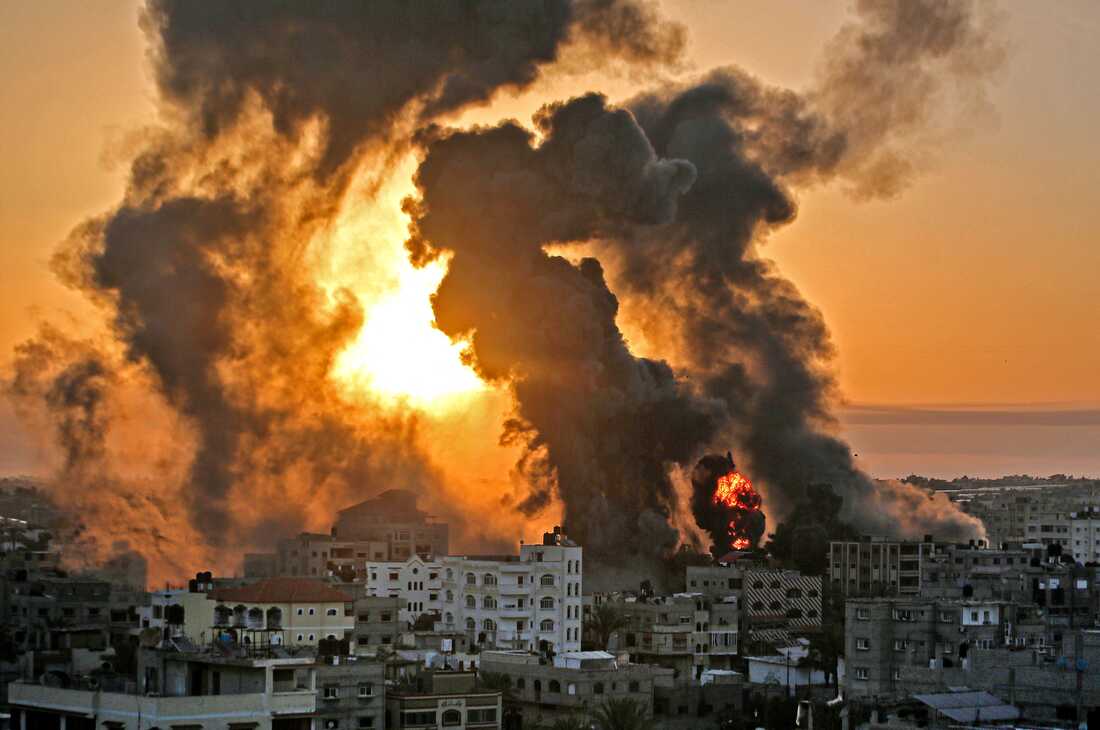THE Israel-Gaza Conflict has been characterised by a sequence of military operations that have had significant and long-lasting ramifications.
The subsequent section of this article endeavours to concentrate on the military manoeuvres executed by Israel and the ensuing aftermath by examining potential resolutions to ameliorate this conflict.
The military operations
The Israel-Gaza conflict has witnessed several military operations before, such as:
- Operation Returning Echo, which took place from March 9-14, 2012, consisted of a series of Palestinian rocket attacks and Israeli reprisals. These actions were a direct result of the targeted killing of the Popular Resistance Committees (PRC) chief;
- Operation Pillar of Defense, occurring from Nov 14-21, 2012, was initiated by Israel in response to more than one hundred rocket attacks on southern Israeli cities. The operation began with the targeted killing of Ahmed Jabari, the chief of Hamas military wing, and included airstrikes against twenty underground sites that housed long-range missile launchers capable of striking Tel Aviv.
- During Operation Guardian of the Walls (May 2021), which lasted for 11 days, a total of 4,360 rockets were launched at Israel. Out of these, 3,573 rockets landed within Israeli territory, while the remaining fell either within the Gaza Strip or into the sea. The Iron Dome aerial defence system successfully intercepted approximately 90% of these rockets. Tragically, eleven civilians lost their lives due to rocket fire, and an Israel Defense Forces (IDF) soldier was killed by an anti-tank missile. Additionally, several hundred individuals sustained injuries, and there was significant damage to residential properties, schools, industries, businesses, and agricultural areas. The IDF targeted around 1,500 sites within the Gaza Strip.
- Operation Breaking Dawn (Aug 5, 2022) spanned three days, during which a total of 1,175 rockets were launched at Israel. The Iron Dome aerial defence system successfully intercepted 97% of these rockets. Roughly 200 rockets fell within the Gaza Strip or into the sea. The majority of these rocket barrages targeted Israeli communities near the Gaza Strip, although some were aimed at cities in Israel’s southern region, along the coast, the greater Tel Aviv area, and the Jerusalem area. The Jerusalem Brigades, the military wing of the Palestinian Islamic Jihad (PIJ), primarily launched most of the rockets, with a small number originating from the military wings of the Popular Front for the Liberation of Palestine and the Popular Resistance Committees. Notably, the Izz al-Din Qassam Brigades, Hamas’ military-terrorist wing, did not partake in the rocket attacks.
The military operations led to considerable loss of civilian lives and extensive damage to infrastructures, including mosques, thereby intensifying the already strained relations between the involved parties.
The Solution
In his scholarly publication entitled “Partitioning Palestine Legal Fundamentalism in the Palestinian-Israeli Conflict” Professor Emeritus John Strawson from the University of East London argues that an unwavering commitment to the concept of legal justice has impeded progress towards resolving the ongoing conflict.
Furthermore, he stressed that rather than facilitating conflict resolution, the law has reinforced the deeply entrenched positions held by both Palestinians and Israelis, perpetuating the adversarial nature of their interactions.
Strawson’s analysis focuses on three significant moments in the Palestinian-Israeli conflict: the League of Nations Mandate, the United Nations partition plan, and the Oslo agreements.
He highlights that these documents are far from impartial, as they encompass a range of interpretations and meanings.
Besides, he traces the influence of these legal narratives on the construction of national identities and the subsequent exacerbation of the conflict.
In my opinion, Strawson’s work on this issue should form the basis for a resolution that can effectively address the protracted conflict and prevent further loss of innocent lives, particularly among women and children.
In a nutshell, the Israel-Gaza conflict is a complex and sensitive issue that requires careful consideration. The lessons learned from World War 1 and 2 have demonstrated that wars are not a viable solution for resolving conflicts.
The ongoing Ukraine-Russia conflict is another example that highlights the devastating impact on civilians, who bear the brunt of the pain for the rest of their lives.
Regional and international actors such as the Arab League, the Organisation of Islamic Cooperation (OIC), the European Union (EU), and the United Nations (UN) play a crucial role in finding a solution that benefits both parties involved.
Revisiting and re-examining the Oslo Accords could be a step forward in finding a solution to this prolonged conflict.
The ongoing violence and strained relations between Israel and Gaza necessitate a comprehensive and sustainable solution that addresses the legitimate concerns and aspirations of both parties.
This solution must also ensure the protection of human rights and the establishment of lasting peace in the region. – Oct 20, 2023
Paneir Selvam is the principal consultant of Arunachala Research & Consultancy Sdn Bhd (ARRESCON), a think tank specialising on strategic national and geo-political matters.
The views expressed are solely of the author and do not necessarily reflect those of Focus Malaysia.
Main pic credit: Getty Images









